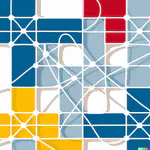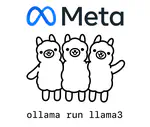Blog - News and Columns
Since its creation in 2020, Training Data Lab has served as a meeting point for researchers at different stages of their careers interested in applied social sciences and quantitative methods. In these five years, we have promoted different collaborations and projects such as, for example, the Ranking Chileno de Ciencia Política (CPS-Ranking). We also launched the series of working papers Tufte Working Papers (ISSN 2735-6043).
Since December 2019, our team has enthusiastically maintained the Chilean Political Science Ranking (CPS-Ranking), a quarterly assessment highlighting the scholarly impact of political scientists in Chile and those focused on Chilean topics through the measurement of their H-index based on Google Scholar profiles. Over five years, this initiative grew notably, starting modestly with 125 profiles and reaching 206 in our final edition in December 2024. This growth reflected genuine interest and recognition within the Chilean political science community, with scholars voluntarily joining or being recommended by their peers. We are deeply grateful for this engagement and the widespread support from researchers nationwide.
In November 2024, I started working on the TextClass Benchmark project, a dynamic, ongoing benchmarking initiative designed to evaluate Large Language Models (LLMs) and transformers for text classification tasks. The project’s focus on social sciences is significant as it addresses the growing need for effective text classification tools in this field. The current coverage includes domains such as digital incivility, policy agenda classification and an incipient classification on misinformation. The project has tested 98 models, including the novels GPT-4.5-preview, DeepSeek-R1 and Gemma 3, almost 3,500 times.
In the framework of the Digital Democracy Workshop 2024, held at the University of Zurich, two associate researchers from the Training Data Lab, Bastián González-Bustamante and Sebastián Rivera, presented a relevant study on digital incivility in political deliberation. In their paper entitled, “Toxicity and Digital Incivility during Political Deliberation: The Case of the Constitutional Convention in Chile”, these researchers explore the magnitude and determinants of non-civil comments directed towards politicians, focusing on the Chilean context.
In a world where social media is increasingly ubiquitous, the ability to identify and understand online toxicity and incivility is crucial for democracy and civil society. In this sense, the project “Large Language Models (LLMs) to Identify Toxicity in the Digital Sphere during Protest Events in Latin America” seeks to develop technologies to detect and analyse toxicity in social networks during protest events in Latin America.









